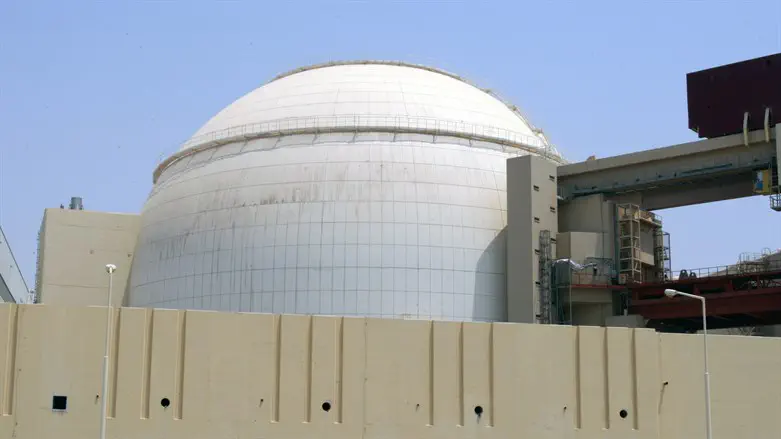
Dr. Salem AlKetbi is a UAE political analyst.
Rapid developments in Iran’s nuclear program are creating a new reality that forces Israel to seriously consider a preemptive strike. Recent reports from the International Atomic Energy Agency show growing international alarm over Iran’s progress toward nuclear weapons capability, which represents an existential threat to Israel and regional stability.
The latest IAEA report reveals deeply troubling developments, confirming that Iran has dramatically accelerated uranium enrichment. Iran has increased production of 60% enriched uranium, dangerously close to the 90% threshold needed for weapons. Current data shows Iran’s stockpile of 60% enriched uranium has reached approximately 408.6 kilograms, growing by 133.8 kilograms over the past three months compared to just 92 kilograms in the previous period.
These figures are deeply concerning, as Iran now has enough material to build multiple nuclear weapons if it chooses to enrich further. The IAEA calculates that just 46 kilograms of 60% enriched uranium could theoretically produce one nuclear bomb with additional enrichment. Iran’s current stockpile could yield 8-9 nuclear weapons.
The Agency’s report also exposes secret nuclear activities throughout Iran, with Tehran clearly trying to hide evidence and block international investigations. Iran has conducted nuclear work at three undeclared sites, then sanitized them to prevent Agency investigators from gathering evidence. Iranian cooperation has been described as “less than satisfactory” because of Tehran’s refusal to provide credible technical information.
These developments show Iran rapidly approaching the “nuclear threshold,” dramatically raising international alarm. Experts believe Iran could enrich uranium to weapons-grade levels within just a few weeks if it decides to cross that line.
These facts confirm that diplomacy has failed to stop Iran’s nuclear program. Instead, Tehran has used negotiations as cover and as a way to gain time to advance its capabilities, as many feared. Despite ongoing talks between Iran and the United States, no new nuclear deal has emerged, while Iran continues pushing its program forward at breakneck speed.
President Trump warned today that Iran is becoming more aggressive in nuclear talks. The head of US Central Command presented options for military action if the negotiations fail.
Israeli concerns about this existential threat are entirely justified, especially as tensions continue escalating. The Israeli Prime Minister’s office has called the International Agency’s report a stark warning about Tehran’s determination to complete its nuclear program, demanding that the international community take immediate action.
Israel’s window for action is clearly narrowing as Iranian nuclear facilities grow more fortified and defenses more sophisticated, making future military strikes increasingly difficult. Iran has been burying its facilities deep inside mountains while developing advanced air defense systems, creating harder targets with each passing month.
Many observers believe this could be Israel’s best moment to act, with American backing and favorable international conditions that may not last. Having a supportive American administration in place offers a window of opportunity that might not reopen, particularly if international politics shift in the future.
But Iran would almost certainly hit back hard against any Israeli strike, with several possible responses ranging from targeted to limited attacks. Iran might launch direct missile strikes against specific Israeli targets while trying to avoid all-out war.
More likely, Iran would activate its network of regional allies to launch coordinated attacks against Israeli targets, potentially spreading the conflict across the Middle East. This would include Hezbollah in Lebanon, militias in Syria and Iraq, the Houthis in Yemen, and possibly sleeper cells elsewhere. Iran could combine direct missile strikes with proxy attacks for maximum impact.
Iran’s missile capabilities and proxy network would create serious challenges for any Israeli military operation. Iran maintains the Middle East’s largest missile arsenal, featuring medium-range ballistic missiles, cruise missiles, and attack drones.
The scattered and hardened nature of Iranian nuclear facilities presents another major obstacle to effective Israeli strikes. Some facilities like Fordow are buried deep underground, requiring specialized bunker-busting weapons to penetrate.
Given these realities on the ground, Israel faces urgent pressure to act quickly before Iran becomes a nuclear-armed state. With Iran already holding large uranium stockpiles and accelerating enrichment, Israel’s window for action is rapidly closing.
Iran’s nuclear threat confronts Israel with an agonizing choice, as time for successful military action continues shrinking. As nuclear facilities grow more impenetrable and Iranian defenses more sophisticated, any mission becomes exponentially more difficult.
Ultimately, Israel faces mounting pressure to make a decisive choice about Iran’s nuclear program, despite enormous risks and challenges. The cost of inaction may far exceed the cost of acting now, especially if Iran succeeds in acquiring nuclear weapons.
